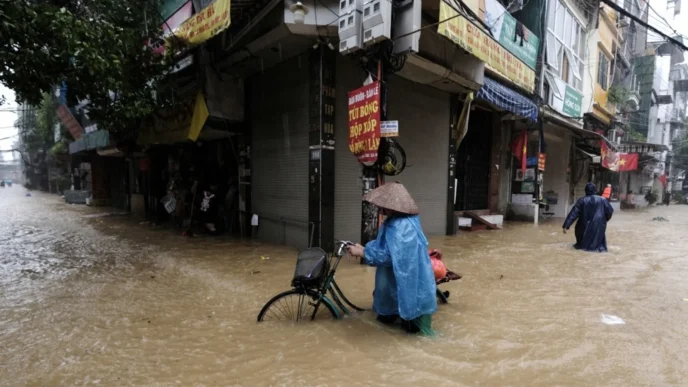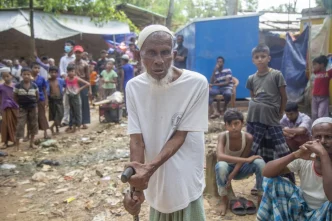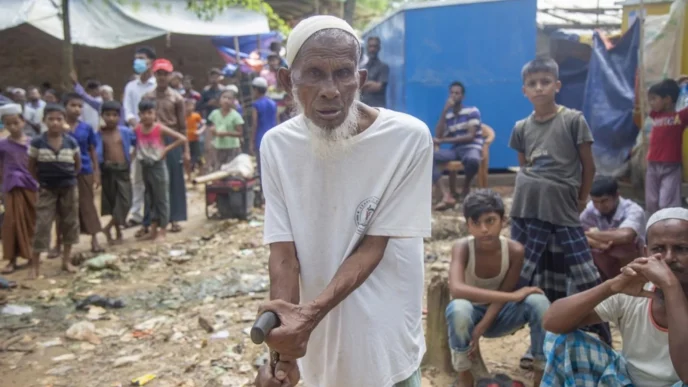BANGKOK: Rungthiwa Pimphanit waited months for a long-promised cash handout of 10,000 baht (US$307) from Thailands ruling party, which she backed in 2023 elections, but now the scheme to stimulate a stalling economy has been put on ice.
Im very disappointed and angry, said the 34-year-old government employee from the northeastern province of Nong Bua Lam Phu, who had counted on the money to pay for her sons school supplies.
Theres no way I will vote for them again.
Rungthiwas hopes withered last month after news that the scheme, a key election plank of the ruling Pheu Thai party, would be delayed, fuelling doubt about any recovery in southeast Asias second largest economy after years of tepid growth.
Prime Minister Paetongtarn Shinawatra blamed steep tariffs proposed by the US, but the delay to her governments flagship programme, on which it has already spent 174 billion baht ($5.3 billion), poses a major political risk, say analysts.
No one will believe anything they say, said Thanaporn Sriyakul, director of the independent Political and Policy Analysis Institute.
The government must keep its promises to the people during the campaign. If they cant do what they said, its over.
The government still has time left in its term, said spokesperson Jirayu Houngsub, reiterating that the scheme had only been postponed. The next polls are two years away.
By that time, if the economy is good, there may even be something more than this programme, he told Reuters.
The handout scheme is popular across Thailand, with its continuation backed by about 60% of 1,310 respondents in a May survey by the National Institute of Development Administration, while about 46% said they would be angered if it was scrapped.
Im upset, said 52-year-old Sathanee Siriphonchaikul in Bangkok, who had planned to use the funds to buy a washing machine. I dont think theyll do it again. The economy is bad.
The Pheu Thai partys failure to fully implement the scheme had damaged its credibility, said political analyst Sukhum Nuansakul.
The digital wallet project hasnt worked, he added. People hoped they would get it and they waited for it, but didnt get it.
The remaining 16 million people registered for handouts should be notified, said Thirachai Phuvanatnaranubala, deputy leader of the opposition Palang Pracharath Party.
The government should tell the truth to these people that it actually wont be able to continue the programme due to budget and technical problems, he said in a statement.
Growth and debt
Three months after its launch, the stimulus plan had been unable to boost consumption, mainly because the handouts were sometimes used to pay down debt, central bank Governor Sethaput Suthiwartnarueput told Reuters this year.
Thailands household debt is among Asias highest, at 88.4% of gross domestic product.
On the campaign trail, the party floated the scheme as a multibillion-dollar initiative to kick-start Thailands pandemic-hit economy and reach annual growth of about 5%.
Yet, the US$550-billion economy expanded by just 2.5% last year, lagging regional peers, and this year looks even worse.
Since launching the scheme last September, after numerous adjustments and delays, the government has distributed just over a third of the earmarked 450 billion baht (US$14 billion).
The first tranche of 144.5 billion baht in September went to welfare cardholders and people with disabilities, with a second phase of 29.9 billion baht delivered to senior citizens in late January.
The 157 billion baht meant for the schemes next stages will now go to fund projects to help the economy cope with the impact of proposed US tariffs, on advice from the central bank and a state planning agency.
Both of them asked us to reconsider, to see if this money can be used for something more urgent and necessary than the digital money handout, Paetongtarn said when announcing the delay.
Thailand faces a US tariff of 36% if it cannot negotiate a reduction before expiry of a July deadline, until which a rate of 10% prevails.
Last month the state planner shaved its economic growth forecast for this year by one percentage point, to a range of 1.3% to 2.3%, warning that the tariff impact would last for two years.
The governments mismanaged policies are reflected in GDP growth of just 2% in 2023 and 2.5% in 2024, said Prakit Siriwattanaket, managing director of Merchant Partners Asset Management.
The downside of the digital wallet is that it didnt stimulate the economy as they thought, he said. Its an extremely wasteful handout.









